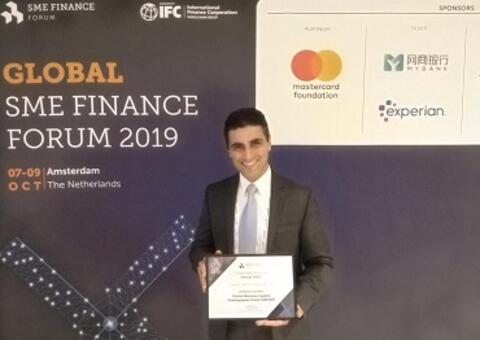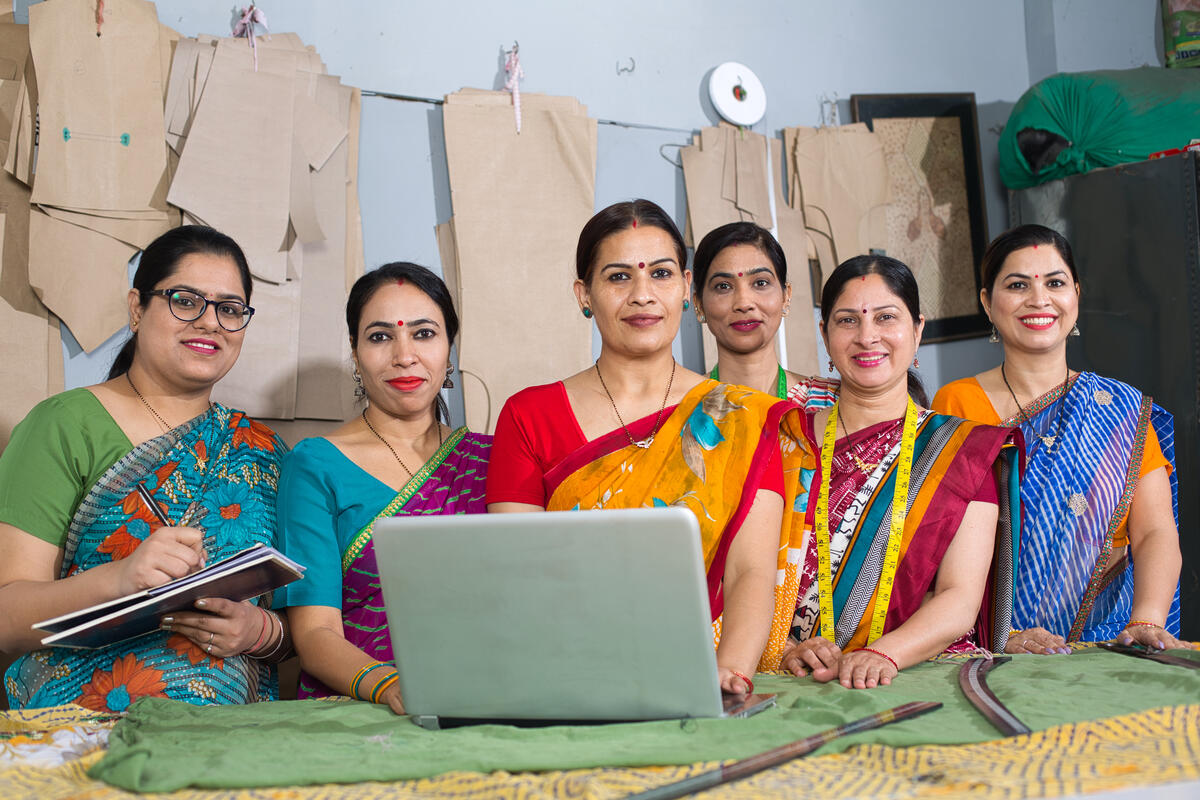Blog
The Path to Impact Investment in the "Last Mile”

Whether you call it the triple bottom line, responsible investment or impact investment, they all express the same core desire—to invest in a project, or pipeline of projects, that can deliver financial returns to the investor and impact returns to a constituency, community or beyond.
And while the investment desire to do well and to do good is hardly anything new, what we are witnessing more of is a shift in focus to the financial products side. Investors are now looking for the tools that will enable them to achieve both ROI and impact, whether Environmental Social Governance (ESG) impact or impact tied to the Sustainable Development Goals (SDGs). As a result, more and more financial service providers are looking to meet the demand for those products, whether it is SDG-focused exchange traded funds, blended finance vehicles or ESG bonds.
The subject of financial products that can deliver this kind of dual return has been a focus for the United Nations Capital Development Fund—the capital investment arm of the United Nations that focuses on unlocking public and private finance to the world’s 47 least developed countries. UNCDF was honored at this year’s Global SME Finance Forum when it received an honorable mention for “Product Innovation of the Year”—sharing space with such institutions as Euler Hermes, Allianz; BBVA and the European Investment Fund among others.
The innovation in question is our agency’s “dual key” system. This is a centerpiece of our local economic development finance approach which leverages private finance to invest in SMEs supporting local infrastructure and development projects in the world’s least developed countries, otherwise referenced as the “last mile.”
Ultimately, the dual key is a multi-factor analysis that helps us answer the question that will determine whether the investment will move ahead to financial disbursement: will this investment deliver impact in the form of local economic development, women’s economic empowerment, ESG or food security, which would unlock the technical key; and will it deliver financial impact in the form sustainability and follow-on investment potential, which would unlock the financial key.
But it would be a mistake to assume that the dual key system delivers this dual impact merely because it is intended to do so. Whether it is our dual key system, an ETF or a credit default swap, the truth is any financial instrument is neutral. Rather, it is the investment principles underlying the use of the tool that determine the returns or impact it will yield. And when it comes to the dual key system, what determines its success are the principles of successful local economic development as we understand them.
One of those principles involves the role that value chains can play in advancing or undercutting local development. An essential reality is that value chains can just as easily extract wealth from local economies as they can add value to them. More to the point, just because an SME is locally based does not mean that it will not transfer disproportionate amounts of wealth to its foreign affiliate. Based on this understanding, we use the dual key approach to source SMEs that contribute to development within the territories they operate in, specifically through assessing externalities as well as forward and backward supply chain linkages.
Secondly, there is the principle that domestic banks are a critical partner in building local economic diversity and capital market development. While domestic banks in LDC markets are known for having a low threshold for risk, these markets may very well possess banks with an appetite for riskier investments. An essential reason is that domestic banks do not have to worry about exchange rate or forex risks and are better able to understand the national political economy as well. But even if domestic banks are willing to embrace riskier investments, they do not always have the expertise to invest in SME finance beyond micro finance, real estate and import-export credit, or they are not able to identify good quality projects. In this context, the dual key system purposely collaborates with local governments and domestic banks to ensure the policy, regulatory and investment climate is conducive to local economic development and private sector development, and then helps develop and de-risk pipelines of investable projects that are of high quality and standards to induce markets, domestic banks as well as crowd-in financiers to invest in SMEs.
Finally, the dual key approach is more than ‘business development services’. Through detailed collaboration and structuring of SME investment proposals as well as continuous engagement with the domestic financial sector and domestic regulators, we are working to ensure that UNCDF’s seed capital has a wider demonstration effect beyond the individual transaction. For example, in our effort to increase local investor schemes for SMEs, we are increasingly succeeding in bringing national sovereign funds into LDCs to invest alongside domestic banks, which would hopefully create a signal effect for all types of investors. (We partnered with FONSIS Sovereign Fund Strategy Investment in Senegal to invest in equity in SMEs that are women led.) This reflects what may be the most important principle—that we must always strive to leverage our investments to demonstrate the larger investability of the market, because that is how transformative effects can be created.
For investors seeking a dual return, take the time to discern the investment principles, not merely the investment strategy, that will drive the use of a financial product. The principles can truly make all the difference.
This article was prepared by the United Nations Capital Development Fund, recipient of an Honorable Mention in the category "Product Innovation" of the Global SME Finance Awards 2019.










